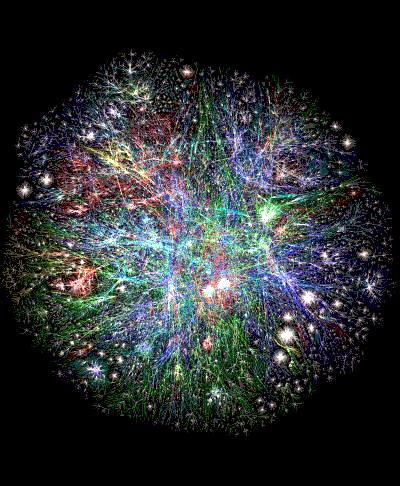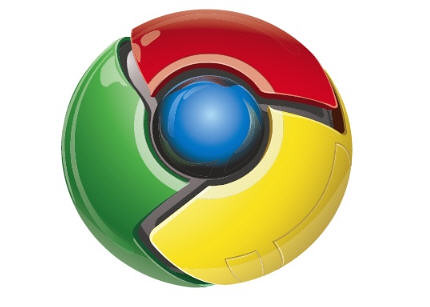In being thoroughly discouraged by what cuts it as an internet meme these days, I've decided to do a little deconstruction in determining what make a meme into the little slice of temporary pop culture phenomena that it is.
First, let's not deceive ourselves into thinking that ascertaining a meme's popularity is totally predictable. I maintain that a mainstream meme is the result of sheer luck and circumstance of a well-placed tweet or digg by a popular blogger, or a surreptitious mention on a popular podcast. So if one's heart is set on creating the next big meme, where does one begin?
Ingredient One: I Can Mistake Inglish?
Back as far as "All Your Base Are Belong To Us" people have flocked to mildly humorous examples of the English language being misrepresented or completely mismanaged to create a lasting effect that ranges from the silly to the absurd. Of course several years after the "Base" meme ran its course, "I can has cheezburger" kept up the trend, but included what will become our second step. The "Base" meme, due to its early nature, took longer to evolve and, because of it, stuck around longer. Several music and video remixes were made that required a certain level of expertise and allowed for the endurance of "Base".
Ingredient Two: Animalz R Phunny
Whether it's a cat, owl, or prairie dog, the sure sense of a odds-on meme will include an animal of some sort. With popularity going back to the early days of cats making unsuccessful jumps from sofas to tables, people love to see animals in two different scenarios: 1) being cute, 2) wiping out. The animal memes rely heavily on the minor abilities of people to use image editing to add text to photos. The partial, yet relatively minor skills involved in pushing this type of meme forward will spread it far more quickly, but ultimately cause it to flame out quicker.
Ingredient Three: Unmotivationals
The minor Photoshopping skills that people require for the text/animal mashups can also be used to create faux motivational posters. While this has become a meme in itself that would have run its course, the endless content that can be adapted has kept this satirical or parody-inspired practice in vogue. Also, the sheer ridiculous factor of the ever-growing original Motivators will continue to inspire this knockoff meme.
Ingredient Four: People Say/Do the Stupidest Things
"Stupid" people (read: wrong time, wrong place, wrong words for many of them) initiate this style of meme that propagates through video. Let's face it, it only takes the flailing of Star Wars Kid or a beauty pageant candidate exposing her sheer idiocy to capture the imagination of a mashup web generation. Remember "I like turtles!", "I'm not taking my glasses off", or "Leave Britney Alone!" If you don't, you must have been away from the web or ignoring the Fw:fw:fw: in your webmail boxes during the perfect time period. The stupidity inspires mashups, knockoffs, and responses that can keep these memes alive for a few weeks. The ease of use in spreading the word about these clips have made them some of the most popular memes of all. After all, what does it really take to email a youtube link to a friend, post it on twitter or facebook, or blog about it? But even if video dries up, you can always just add text to a picture of a person caught in an embarrassing situation that reads "EPIC FAIL!"
Ingredient Five: The Unexpected
From the early efforts of people being redirected to gross out porn to the more recent efforts that have revived Rick Astley's career through Rickrolling, the ability of someone to perform misdirection in link text or similar disguise has become as much an email meme as it has a web meme. Microblogging is a ripe medium for such an effort as it has become so simple to type "You Have to See This Car Accident" and then have the url redirect to Astley or a dozen other crazy clips. Kind of the laziest practical joke going, the misdirected link to unexpected content will always be around in one form or another.
And so we come to the part of the post where I try to create the ultimate meme. While I will try to incorporate as many of the ingredients as possible, I may not hit all of them. Cats have been done to death so I'm mashing up a picture of a soft-shelled turtle splayed out on the sand with its head half peeking out with the all upper case captions "I NEEDZ VIAGRA" across the top and "CLIC HERE TO HELP" across the bottom. In blazing red upper and lower case mix, diagonal to the top right we have "EPiC SHeLL FaiL" and the entire picture, when clicked, links to the misdirection video clip from an 80s band. While I've missed out on the Motivational parody and the human aspect in the original content, I do believe the goofy humans in the video make up for it. So we have a 1-2-5 meme with a dash of post 4.
Please feel free to send the link to as many friends as you like or mashup your own soft-shelled turtle viagra jokes as you can muster... I feel cheap and dirty.







